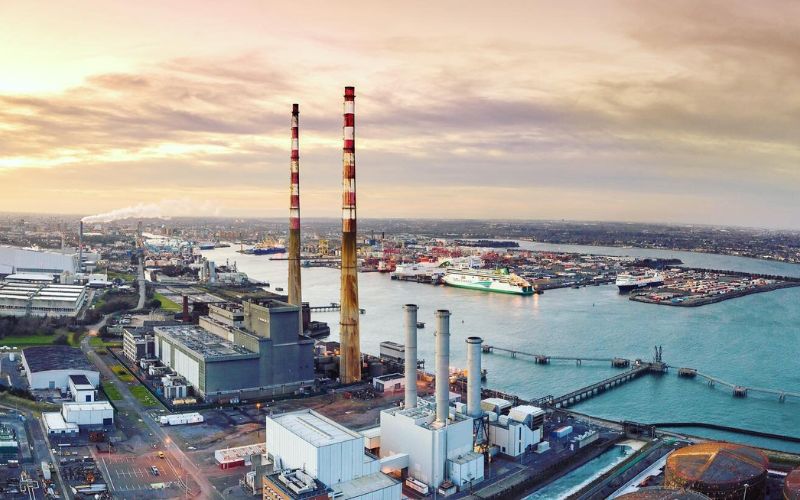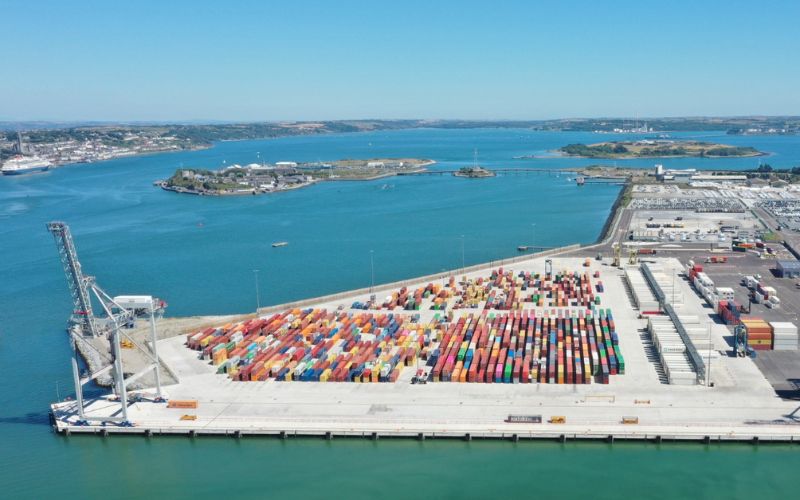Euroroute Logistics
Capacity Constraints and Modernising Irish Ports for Efficient Trade
As global trade continues to grow, the efficiency and capacity of port infrastructure have become critical factors for the success of supply chain operations. In Ireland, capacity constraints at ports have posed significant challenges for businesses, affecting trade efficiency and economic growth. However, ongoing modernisation efforts promise to transform Irish ports, enhancing their capacity and operational efficiency. In this blog we explore the current capacity constraints, modernisation initiatives, and their implications for trade. We will also highlight how Euroroute Logistics can help businesses navigate these changes and leverage new opportunities.

Current Capacity Constraints
Irish ports play a vital role in the country’s trade and economy, handling a substantial volume of goods each year. However, capacity constraints have become a growing concern. Congestion, limited infrastructure, and outdated facilities are some of the critical issues impacting the efficiency of port operations. These constraints lead to delays, increased costs, and reduced competitiveness for businesses relying on timely and efficient logistics.
Industry Reports
Recent industry reports indicate that port congestion has become more pronounced due to increasing trade volumes and the limited expansion of port facilities. According to the Irish Maritime Development Office, the volume of goods handled by Irish ports has increased by over 10% in the last five years, exacerbating existing capacity issues.
Modernisation Efforts and Initiatives
In response to these challenges, significant efforts are underway to modernise Irish ports and enhance their capacity. These initiatives involve both government-led projects and private sector investments, aiming to create a more robust and efficient port infrastructure.
Dublin Port Masterplan 2040
One of the key projects is the Dublin Port Masterplan 2040, which outlines a comprehensive strategy for expanding and upgrading port facilities. This includes the development of new berths, deepening of channels, and the integration of advanced technologies to streamline operations. Similarly, the Port of Cork is undergoing significant redevelopment to increase its capacity and improve its infrastructure.
Technology Integration
Technological advancements are also playing a crucial role in the modernisation efforts. The implementation of automated systems, real-time tracking, and digital platforms is expected to enhance operational efficiency and reduce turnaround times at ports. These advancements will not only alleviate congestion but also provide businesses with more reliable and transparent logistics processes.
Implications for Trade and Businesses
The capacity constraints and modernisation efforts at Irish ports have significant implications for trade and businesses. On the one hand, capacity constraints can lead to delays, increased costs, and logistical bottlenecks, affecting the overall efficiency of supply chain operations. On the other hand, modernisation initiatives present opportunities for businesses to enhance their logistics operations and improve trade efficiency.
Transition Period
During the transition period, businesses may face challenges such as temporary disruptions and adjustments to new processes. However, the long-term benefits of modernised ports will outweigh these challenges. Improved port infrastructure will enable faster turnaround times, reduced congestion, and enhanced reliability, ultimately benefiting businesses and the broader economy.
Euroroute Logistics’ Role in Navigating Changes
As a leading logistics provider, Euroroute Logistics is well-equipped to help businesses navigate the changes in port infrastructure and mitigate the risks associated with capacity constraints. Our expertise in managing supply chain complexities ensures that our clients can maintain efficient operations even during periods of transition.
Flexible Warehousing Solutions:
Euroroute offers flexible warehousing solutions that can adapt to changing port capacities and logistics requirements. Our strategically located warehouses provide ample storage space and efficient inventory management, ensuring that businesses can seamlessly manage their stock levels.
Advanced Logistics Technology:
Euroroute leverages state-of-the-art logistics technology to optimise supply chain operations. Our integrated systems facilitate automated order processing, inventory tracking, and data analytics, allowing businesses to make informed decisions and improve operational efficiency.
Leveraging Opportunities for Growth
The modernisation of Irish ports presents significant opportunities for businesses to enhance their trade operations and achieve growth. Improved port infrastructure will enable faster and more reliable shipping, reducing lead times and enhancing customer satisfaction. Businesses can also benefit from reduced congestion and lower logistics costs, leading to increased competitiveness in the market. Euroroute Logistics is committed to helping businesses leverage these opportunities for growth. Our tailored logistics solutions are designed to meet the unique needs of each client, ensuring that they can capitalise on the benefits of modernised port infrastructure. Whether it’s optimising supply chain processes, scaling operations, or improving overall efficiency, Euroroute is your trusted partner in navigating the evolving logistics landscape.
Contact Euroroute
Contact Euroroute Logistics today to learn more about how we can support your business in navigating the evolving port infrastructure and enhancing your trade efficiency.
The modernisation of Irish ports presents significant opportunities for businesses to enhance their trade operations and achieve growth.
Improved port infrastructure will enable faster and more reliable shipping, reducing lead times and enhancing customer satisfaction. Businesses can also benefit from reduced congestion and lower logistics costs, leading to increased competitiveness in the market.

